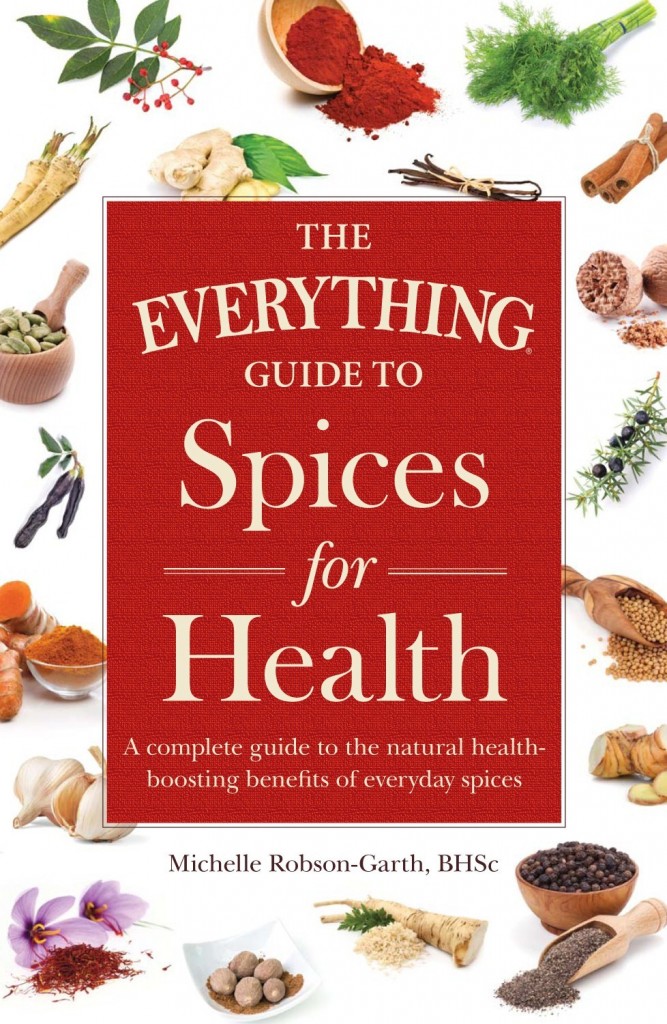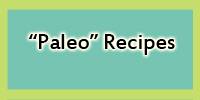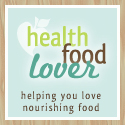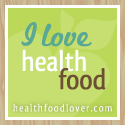We all make our own choice as to whether we follow an omnivorous diet or one contains little or even no animal products. No one diet can serve us all. Though, for a long time, we have been taught from the media, special-interest groups and many other sources how a plant-based diet is superior to one that contains animal products. However eating a plant-only diet means we will miss out on nutrients that are so very crucial and beneficial to our health. This post really only scratches the surface of why animal products are important. Keep in mind I believe in the power of the individual diet and I know that including animal products in the diet isn’t suitable for everyone, so please keep an open mind when reading this post.
Let’s goes through some of the nutrients and have a look at as to why we need animal products in the diet:
Protein
Limiting amino acids: I thought I would start with protein first. Firstly, yes amino acids and proteins are found in many other foods other than animal sources. However in vegetable foods including grains and legumes, these foods have what are called limiting amino acids. Limiting amino acids are amino acids that have the lowest amount of that certain amino acid(s) in that food. What this means is that if we eat foods that only contain those limiting amino acids, then we have less availability of amino acids and it actually prevents our body from making proteins because we cannot make protein when we have an amino acid missing. Those following vegetarian diets can help improve their amino status by having a few vegetable protein sources to help increase the range of amino acids called mutual supplementation (i.e. protein combining). For example, legumes have high amounts of the amino acid lysine, but contain low amounts of amino acids that contain sulfur so to combat this you could include grains when eating legumes which are higher in other amino acids. A vegetarian diet that contains both eggs and milk in combination with plant foods has potential to contain more complete proteins compared to one that includes just milk and plant foods, as milk doesn’t meet the requirements to contain the right pattern for sulfur-containing amino acids (Groff, Gropper and Smith, 2009).
How well proteins are digested: How well a protein is digested, that is the amount of amino acids that are absorbed after eating a certain protein is important. Animal proteins are much more digestible than those of plant sources. Some animal proteins have around 90-99% digestibility whereas those of plant origin can have a digestibility range from 70-90% (Groff, Gropper and Smith, 2009.
Protein Deficiency/Malnutrition: Protein deficiency can occur in those who do not eat enough protein with or without adequate energy (kilocalories). Kwashiorkor is a type of protein malnutrition in which you may eat enough energy through carbohydrates but not enough protein is ingested (Groff, Gropper and Smith, 2009).
Cautions/contradictions: Of course some health conditions require the amount of protein, including plant sources of protein to be monitored carefully, as too much protein in those circumstances can contribute to adverse effects within the body. A qualified health professional will usually help monitor their protein status. These conditions include Argininosuccinic acid lyase deficiency (ASAL deficiency), Maple Syrup Urine Disease and Phenylketonuria (PKU).
B Vitamins– some B vitamins are best found in animal products, though others are high in plant foods.
Vitamin B2 (Riboflavin): Generally vitamin B2 is much better absorbed in animal products (such as in eggs, meat and milk products).
Vitamin B12: Vitamin B12 is not found in any plant products, unless they have been contaminated with feces/grown with manure which has been noted to have happened with mushrooms (source). According to (Vegan) Registered Dietitians Norris and Messina (2011, pg. 27) ‘there is no controversy at all: All vegans need to take a B12 supplement or consume foods that are fortified with this nutrient”. Vegan diets will need to be supplemented with vitamin B12.
Folate (Folic Acid) (Vitamin B9): Folic acid is found in foods such as mushrooms and leafy greens. (Think *foliage* for folate) However for folate to be hydrolyzed it needs zinc.
Choline Choline was named an essential nutrient by the Institute of Medicine in 1998. One of it’s richest sources is eggs (Zeisel & Da Costa, 2009). For a great read on why choline is an essential nutrient have a read of Why you should eat more (not less) cholesterol by Chris Kresser where he goes into some detail about how important choline is.
Essential Fatty Acids (EPA & DHA) Chia and flax seeds are sources of alpha linolenic acid (the plant pre-formed essential fatty acids) which converts eventually to Eicosapentaenoic acid (EPA), and then Docosahexaenoic acid (DHA).But for that to happen it needs the nutrients vitamin B6, magnesium, zinc, vitamin B3 and vitamin C. If the diet is low in these nutrients it may inhibit the production of EPA and DHA. However if we consume certain animal products such as deep sea oily fish we can get EPA and DHA in our diet from those foods without having to depend on their conversion from alpha linolenic acid and requiring the nutrients needed.
Vitamin A: Vitamin A as a group can be divided into Vitamin A (retinol) and provitamin A carotenoids (called because they make vitamin A in the body) depending on where vitamin A is found in food. In animal products the form of vitamin A is retinol, whereas in plant foods the form of vitamin A is as carotenoids. Retinol is the most usable and active form which is found in animal products including liver and dairy products as well as in certain fish. Provitamin A carotenoids are a group of compounds which are precursors to vitamin A. There are over 600 types of carotenoids though only 10 percent of those are thought to be able to convert to retinol. One of those with the greatest amount of provitamin A activity is beta-carotene. Other carotenoids that are not precursors to Vitamin A have other beneficial effects in the body. Sources of carotenoids include yellow, orange, red and other brightly coloured food (natural foods that is, of course). Vitamin A as Retinol is important for vision, differentiation of cells, growth, reproduction, bone development, and immune system actions (such as mucous membrane support). Carotenoids on the other hand, are thought to be part of our membranes, part of lipoproteins and exhibit antioxidant activity as they can react with and destroy free readicals in lipid membranes (Groff, Gropper and Smith, 2009, p. 373-388).
Iron: Heme-iron is found in foods such as red meat and some other animal products. Vegetarian sources contain the non-heme form of iron. Heme iron is more efficiently absorbed than non-heme iron (Hunt, 2003). Furthermore iron in plant foods is inhibited by phytate meaning our body has less ability to utilise it. In my post on Phytate I went over some ways to help increase the absorption of non-heme iron.
Zinc: Like non-heme iron, zinc is also inhibited by phytate. Meats, shellfish and oysters are high in zinc while plant foods are a much poorer source of zinc (Kohlmeier, 2006, pg. 686). Zinc is needed in many enzymatic reactions in the body as well as the replication and functioning of DNA. Low zinc can impair our digestive capabilities, synaptic nerve signalling, gene expression, control of oxidation, growth and wound healing and immune function (Kohlmeier, 2006, pg. 689-690).
Cholesterol: “Cholesterol, which is one of the most important and abundant steroids in the body, is a sterolbecause it contains an oxygen atom as a hydroxyl (-OH) group on carbon 3″ (Timberlake, 2003, p. 601). “Cholesterol is a component of cellular membranes, myelin sheath, and brain and nerve tissue. It is also found in the liver, bile salts, and skin, where it forms vitamin D. In the adrenal gland, it is used to synthesize steroid hormones. Cholesterol in the body is obtained from eating meats, milks, and eggs, and it is also synthesized by the liver from fats, carbohydrates and proteins. There is no cholesterol in vegetable and plant products” (Timberlake, 2003, p. 601). “Dietary cholesterol has surprisingly little effect on fasting cholesterol levels”- p. 449, Davidson’s Principles & Practice of Medicine. “Contrary to widespread belief, changing the amount of cholesterol in the diet only has a minor influence on blood cholesterol concentration in most people” (Gropper. Smith and Groff, 2009).
Your body needs cholesterol and you can only get it from animal products.
Saturated fat: Many believe saturated fat is inflammatory but it is not actually present in the prostaglandin/inflammatory pathway at all. It is excess omega 6 to omega 3 ratio (and deficiency of the nutrients needed accompanied with it as discussed above in the essential fatty acid section) which contributes to inflammatory prostaglandins. Regarding heart disease, many studies have come out recently including a meta-analysis in 2010 by Siri-Tarino & Sun that found there was “insufficient evidence from prospective epidemiologic studies to conclude that dietary saturated fat is associated with an increased risk of CHD, stroke, or CVD”. Other studies even suggest that full-fat dairy consumption decreases the risk of cardiovascular disease (Bonthuis & Hughes et al 2010). While, Silaste and Rantala (2004) who looked at the how certain dietary modifications affect the oxidation of low density lipoproteins found that a diet high in polyunsaturated fatty acids actually and low in saturated fats actually contributed to the increase of circulating and oxidized LDL and lipoprotein A (this is not good). It has also been suggested that saturated fats are needed in the production in surfactant.
A note on the quality of animal products: When choosing animal products, we must take into consideration how the animals were fed and how they were raised. Unhealthy animals produce unhealthy animal products.
Of course this post isn’t to say that we must eat animal products alone. Plant foods contain many beneficial nutrients that have an important place in the diet, so include as much variance with plant foods as you may with animal products. But for those want to maximise their diet it can be a good idea to include both good quality animal products and plant foods and to vary their diet as much as possible to help become more nutritionally replete. I will be updating this post often so check back soon for more details.
References used in this post:
Davidson’s Principles & Practice of Medicine
Groff, Gropper and Smith, 2009, ‘Advanced Nutrition and Human Metabolism’, 5th Edition, Wadsworth, USA.
Hunt J, 2003, ‘Bioavailability of iron, zinc, and other trace minerals from vegetarian diets’, American Journal of Clinical Nutrition, Vol. 78, No. 3, 633S-639S, http://www.ajcn.org/content/78/3/633S.long, viewed 12th January 2012.
Kohlmeier M, 2006, ‘Nutrient Metabolism’, Academic Press, Elsevier USA.
Norris J, Messina V, 2011, ‘Vegan for Life: Everything You Need To Know To Be Healthy And Fit On A Plant-Based Diet‘, Da Capo Press, USA.
Silaste ML, Rantala M, Alfthan G, Aro A, Witztum JL, Kesäniemi YA, Hörkkö S, 2004, ‘Atherosclerosis and Lipoproteins: Changes in Dietary Fat Intake Alter Plasma Levels of Oxidized Low-Density Lipoprotein and Lipoprotein(a)’, http://atvb.ahajournals.org/content/24/3/498.full, Arteriosclerosis, Thrombosis, and Vascular Biology. 24: 498-503 viewed 12th January 2012
Siri-Tarino, P, Sun Q, Hu F, Krauss R, 2010, ‘Meta-analysis of prospective cohort studies evaluating the association of saturated fat with cardiovascular disease’, American Society for Nutrition, 91(3): 535–546, viewed 12th January 2010
Timberlake KC, 2004, ‘General Organic, & Biological Chemistry’, Pearson, USA.
Zeisel SH, Da Costa KA, 2009, ‘Choline: An Essential Nutrient for Public Health’, Nutr Rev. 67(11): 615–623., http://www.ncbi.nlm.nih.gov/pmc/articles/PMC2782876/?tool=pubmed, viewed 12th January 2012
Why you should eat more (not less) cholesterol
Shared at: Fight Back Friday Jan 13th
– – – – – – – – – – – – – – – – – – – – – – – – – – – – – – – – – – – – – – – – – – – – – – – – – – – – – – – – – – – – – – – – – – – – – –
© Copyright: 2012 Michelle Robson-Garth. Please ask permission first when using any text or images on healthfoodlover.com. See the disclaimer here. Have a look at the recipe index for more health food lovin’ recipes. Join the Facebook page & follow Health Food Lover on twitter.




















{ 12 comments… read them below or add one }
Fantastic information, Michelle! It concerns me that so many people jump on board dietary bandwagons without understanding how it will impact on the complex nutritional needs of the human body.
If people have moral objections to eating animals, that’s their prerogative, and as long as they supplement their diet adequately with vitamins and minerals etc, they’ll most likely be fine. But those who think that plant-based diets are “healthier” are simply ill-informed.
I’m sharing this! :)
Thank you Kek! I’m all about sharing and getting real nutritional info out there so I’m glad you liked this post!
It has been proven time and time again that a plant-based diet, based on a variety of fruits, vegetables, legumes, nuts and seeds, is not deficient in any nutrients. I’ve been vegan for 4 years and have never needed any sort of supplementation. Moreover, I was anaemic as a meat eater, since going vegan, my iron levels are now normal, my cholesterol levels are excellent and the rest of my blood work is exceptionally good. Proving that you do not, in any way, shape or form, require animal products of any description to be healthy. To suggest otherwise is recklessly twisting the truth.
Dear Tamstermac.
Thanks for your input. I’m glad you’ve found a diet that works for you and your health has improved. We all are individuals and should follow a diet that fits our own nutritional needs. My aim with this post was to explain the benefit of including animal products in ones diet based on nutritional science, however I do understand that consuming animal products is not for everyone and it doesn’t always fit everyones needs. But thank you for sharing your story and I wish you continued health.
Michelle,
I just found your blog through Food Renegade and I thought this was a really timely and informative post. I’ve spent most of my adult life as a vegetarian and held the belief that eating lower on the food chain was the only ethical way to eat. I’ve also been troubled by nagging health issues all my life including ulcers, migraines, allergies, fatigue, and adult acne. My diet was very clean and I continually strove to find the right combination of eating and health regimens to eliminate the problems, including eating a raw diet, no dairy, no meat, no sugar, fasting, exercise, meditation, different supplements, etc. with no relief. I’m also a fermenter and have grown my own sprouts for years. I never once considered meat consumption as a solution.
Until last summer when I read some of Lierre Keith’s work and I found the ancestral community. Desperate for some relief from the twice a month debilitating migraines that robbed me of a minimum of 3-4 days a month for the last 12 years of my life, I immediately adopted a primal based lifestyle, ditching all grains, legumes, and sugar and increased my consumption of animal sources of protein. I was already eating a healthy dose of vegetables and fruit, so not much change there. After six months, I can honestly say, I never want to go back to the way I felt before and all my health problems including the migraines have disappeared.
I continue to learn and listen to my body, and my views may change depending on new information I may receive, but I’m thankful to have found a way of eating that has proven to be optimally better for me now.
I’m also thankful for writers like yourself who can give a voice to those who may be feeling guilty about their eating choices or that they are somehow not compassionate or they just aren’t doing something right. As you stated, it’s all about keeping an open mind, educating ourselves, and listening to our bodies.
Hi @Chandra:
It’s inspiring to see how you tried out many ways of eating and you found one that works for you so well and your health is so much better for it Congratulations! Thank you for sharing your story and the inspiration! And thanks for stopping by and the compliments on my article :).
While reading your article, I remembered someone I used to know that his doctor recommended a diet that made him to eat more on animal-based products. I was actually confused that time since I think plant-based are more needed in the body especially if you are undergoing a body condition. At least with your information, I am convinced on the health benefits of animal-based products. Thanks for these great facts.
Interesting post Michelle. I’m certainly not against people choosing to eat animal products but I am totally against the methods of the agricultural farming business…. which we can’t even call “farming” anymore. I think it’s important that people realize the process of how their food gets to their dinner table. The methods used to induce growth by using hormone stimulants, the slaughtering process and overall inhuman conditions these animals endure is heartbreaking. No one wants to think about these things and there is such a disconnect between “us” and our “food”. Go organic/free range etc if you must be a meat eater!
Love this post! It is so very true that nutrients from animal foods are more bioavailable compared to nutrients from plant foods. The best diet, of course, will always include both plants and animals. The ratio will depend on many factors. We are all different but we are all omnivores.
Thanks Primal Toad!
All together the article was very informative but your comment on cholesterol completely negated the quote it was referring to.
“. Cholesterol in the body is obtained from eating meats, milks, and eggs, and it is also synthesized by the liver from fats, carbohydrates and proteins. There is no cholesterol in vegetable and plant products” (Timberlake, 2003, p. 601). “Dietary cholesterol has surprisingly little effect on fasting cholesterol levels”- p. 449, Davidson’s Principles & Practice of Medicine. “Contrary to widespread belief, changing the amount of cholesterol in the diet only has a minor influence on blood cholesterol concentration in most people” (Gropper. Smith and Groff, 2009).
Your body needs cholesterol and you can only get it from animal products.”
If you read the information you’re referring to, it specifically states that the human body produces cholesterol and that fasting (as in not eating) has no impact on cholesterol levels.
Basically not only was your comment about “only [being able to] get [cholesterol] from animal products” blatantly false, the exact opposite is true. In order to maintain healthy cholesterol you do not need to consume any cholesterol as long as you have a healthy diet of carbohydrates, fats and proteins, your body will produce it as it does in the animals whose products you advocate we eat to get it. If you want to learn more about cholesterol, you can follow up here:
http://www.health.harvard.edu/newsweek/Understanding_Cholesterol.htm
I was also really hoping to see some actual examples of non-animal products that are high in the required nutrients. Unfortunately all of your quotes and statements only vaguely refer to their existence while detailing
Hi Simon.
Thanks for your comment and sorry for the late reply!
This post really needs a bit of an update as I wrote it a few years ago!
As to “only [being able to] get [cholesterol] from animal products” I meant exclusively from food products as the source and I wasn’t including the body’s endogenous production of cholesterol. But you are right, our body can endogenously produce cholesterol using CHO, FA and PN as substrates.
Thanks for your thoughts and I hope I can update this post with some fresh information sometime soon.
{ 2 trackbacks }